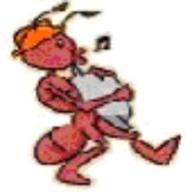Find the limit of
( (1+1/n)^n - e ) * n
as n tends to infinite.
Thanks in advance
Math Problem
2014-04-29 12:57 am
回答 (3)
2014-04-30 12:37 am
✔ 最佳答案
Find the limit of[(1+1/n)^n-e]*n as n tends to infinite.Sol
Consider
d(1+x)^(1/x)/dx
Set y=(1+x)^(1/x)
lny=(1/x)ln(1+x)=ln(1+x)/x
d(1+x)^(1/x)/dx
=dy/dx
=(dy/dlny)*(dlny/dx)
=y*(dlny/dx)
=y*{dln[(1+x)/x]/dx}
=(1+x)^(1/x)*[1/x*1/(1+x)-ln(1+x)/x^2]
=(1+x)^(1/x)*{[x-(1+x)ln(1+x)]/[x^2(1+x)]}
lim(n->∞)_[(1+1/n)^n-e]*n
=lim(x->0+)_[(1+x)^(1/x)-e]/x 0/0 type
=lim(x->0+)_(1+x)^(1/x)*{[x-(1+x)ln(1+x)]/[x^2(1+x)]}
=lim(x->0+)_(1+x)^(1/x)*lim(x->0+)_{[x-(1+x)ln(1+x)]/[x^2(1+x)]}
=e*lim(x->0+)_{[x-(1+x)ln(1+x)]/(x^2+x^3)}
=e*lim(x->0+)_{[1-ln(1+x)-xln(1+x)]/(x^3+x^2)} 0/0 type
=e*lim(x->0+)_{[-1/(1+x)-x/(1+x)-ln(1+x)]/(3x^2+2)}
=e*lim(x->0+)_{[-1-ln(1+x)]/(3x^2+2)}
=-e/2
2014-04-29 10:01 am
Yes, I also know it, but I don't know the details.
This is a good question, I have already bookmarked it.
This is a good question, I have already bookmarked it.
2014-04-29 9:20 am
the answer is -e/2
收錄日期: 2021-04-13 21:21:08
原文連結 [永久失效]:
https://hk.answers.yahoo.com/question/index?qid=20140428000051KK00086

